y = 2x + 2
y = x − 1
(-3, -4)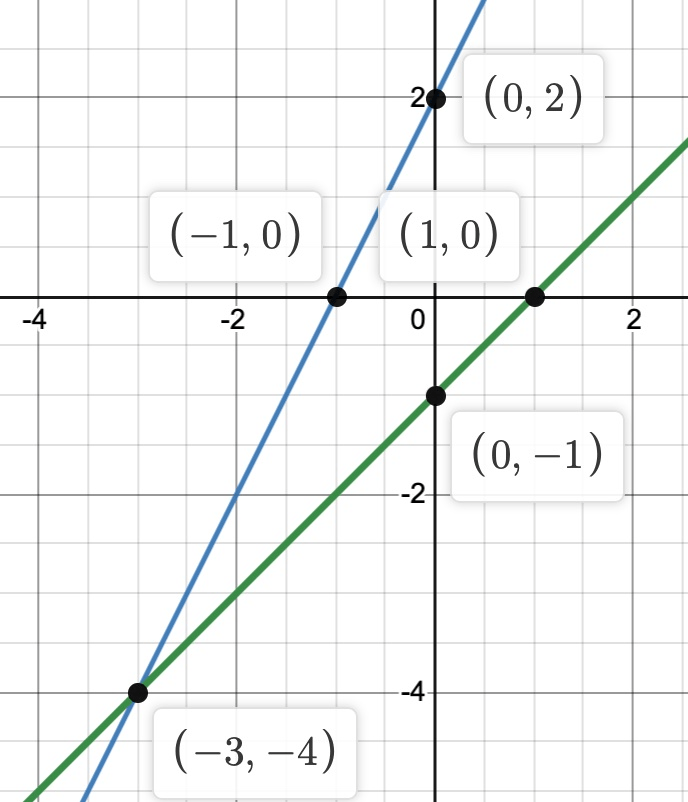
y = 2
3x + 2y = 10
(2, 2)
x + 3y = 5
2x − 3y = −8
(−1, 2)
Find the number of solutions and what "type" of lines
x-3y=1
-2x+6y=5
No solution - Parallel lines
Consists of two or more linear equations in the same variables.
System of linear equations (linear system)
y = 2x + 4
y = 3x + 2
(2, 8)
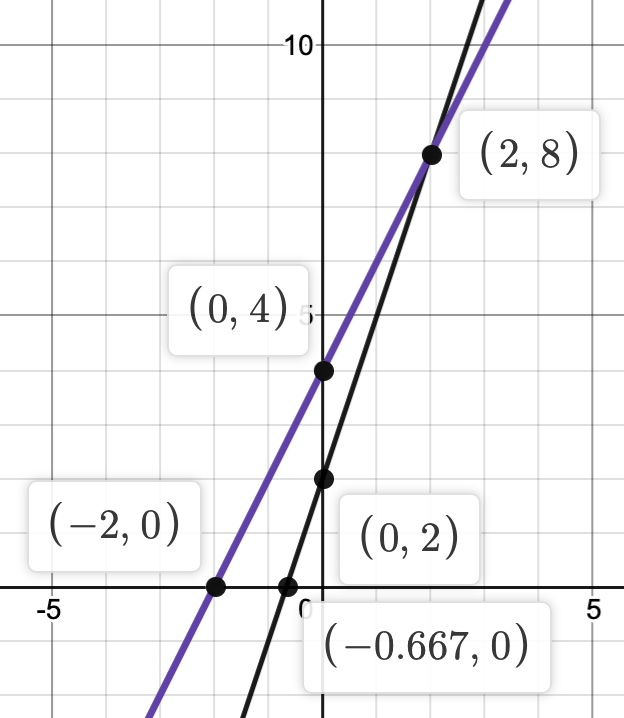
x +3y= 2
−x + 2y = 3
(−1, 1)
−5y + 8x = −18
5y + 2x = 58
(4, 10)
Find the number of solutions and what "type" of lines
y-4=-2/5(x+3)
y+2=-2/5(x-12)
Infinitely Many Solutions - Coinciding Lines
The method of solving equations where you add equations to end up with one variable.
Elimination Method or Linear Combinations
x=3
4x-2y=2
(3, 7)
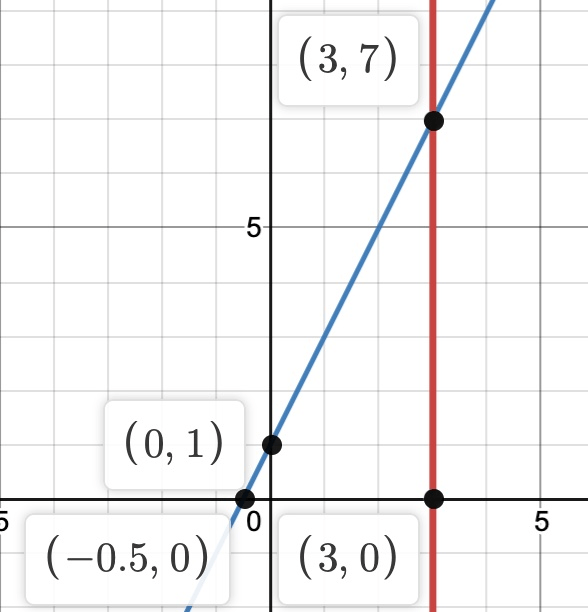
x − 2y = −10
3x -y=0
(2, 6)
5x-3y=24
3x+5y=28
(6, 2)
Describe the system of equations as Independent, Dependent, or Inconsistent.
4x-y=9
x-3y=16
Independent
How can you tell if a linear system has infinitely many solutions? Include how you tell graphically and algebraically when solving.
The equations are the same, the graphed lines lie on top of one another, or solving the system provides a true statement with no variables.
4x + 2y = 8
2x + y = 4
Every point on 2x+y=4 is a solution.
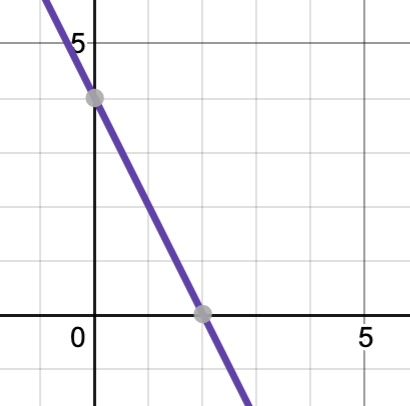
2x – 3y = –2
8x+2y = 48
(5, 4)
x-2y=16
y+3=3x
(-2, -9)
Describe the system of equations as Independent, Dependent, or Inconsistent.
y=-3x+5
4y+12x=20
Dependent
When will a system of linear equations have no solution? Include how you tell graphically and algebraically when solving.
The lines are parallel or they have the same slope and different y-intercepts or when you solve the equations and get a false statement with no variables remaining.
y-1=1/2(x+2)
y-5=1/4(x-4)
(8, 6)
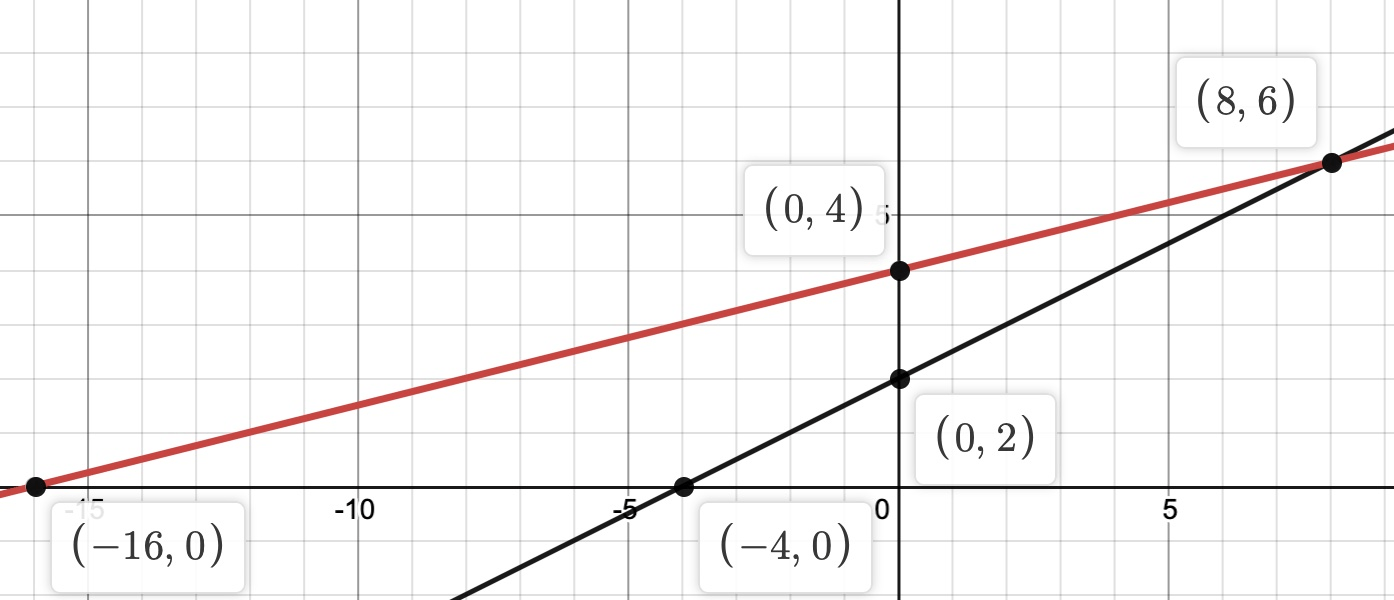
5x − 13+2y =3 y
−5x + y = 24
no solution
13/10x-1/5y=12
2/5 x+17y=89
(10, 5)
Find the number of solutions and what "type" of lines
(x+y)/4-(x-y)/3=1
(x-y)/2+(x+y)/4=-9
One Solution - Intersecting Lines
How does the graphing method for solving a system of linear equations work?
Graph the two lines. The solution is the point(s) of intersection.